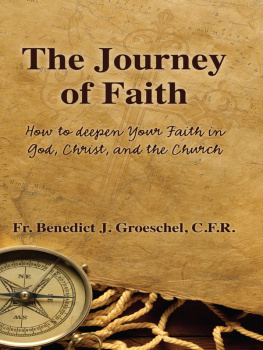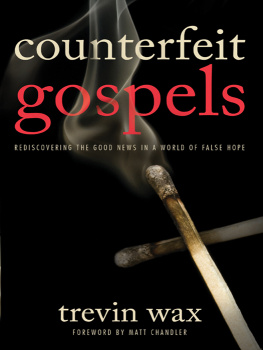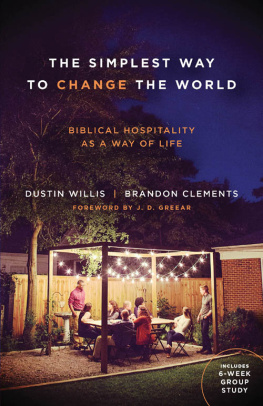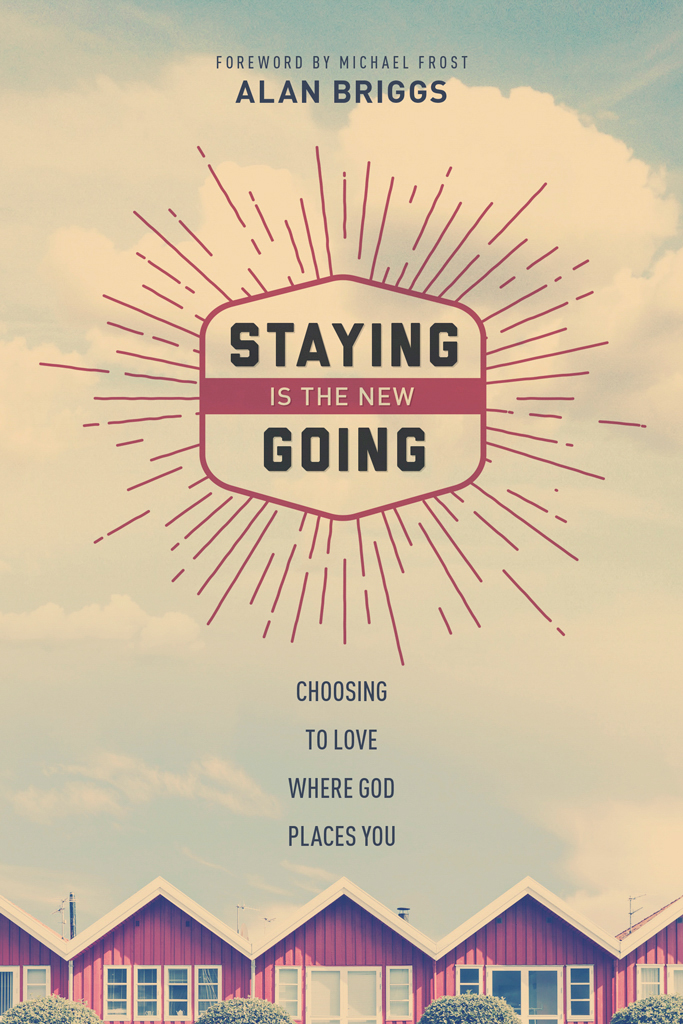Simple and on point. The relevance of local churches in the West rests on these principles.
Jesus response to a question about which neighbors are worthy of our love is to say, in effect, Just be a neighbor. In Staying Is the New Going, Alan Briggs offers us a winsome and practical exploration of an oft-neglected, yet vital component of neighborliness longevity in place. With insight garnered from experience and listening to others, Staying Is the New Going is a welcome addition.
Jesus plants his people the people of the Kingdom in a context. This includes family, workplace, culture, and the places we live. In order to bear fruit in that place, his people must take root. In this wonderful book, we follow Alan as he sets aside wings and learns to put down roots. This book is for learners and is clearly written by a learner. It is challenging, not because the concepts are hard to understand, but because weve somehow drifted far from the timeless truths Jesus told about love for ones neighbor. I long to see Gods people rooted both in Christ and in their neighborhoods. In Alan I sense a like-hearted traveler who helps me see that my greatest journey may simply be a walk around the block.
Do you have the courage to join in how God is working right around you, in your everyday life? Perhaps more importantly, do we as the church? This timely and energizing new book by Alan Briggs dares you to join a movement thats probably much closer than you imagined.
NavPress is the publishing ministry of The Navigators, an international Christian organization and leader in personal spiritual development. NavPress is committed to helping people grow spiritually and enjoy lives of meaning and hope through personal and group resources that are biblically rooted, culturally relevant, and highly practical.
For a free catalog go to www.NavPress.com.
Staying Is the New Going: Choosing to Love Where God Places You
Copyright 2015 by Alan Briggs. All rights reserved.
A NavPress resource published in alliance with Tyndale House Publishers, Inc.
NAVPRESS and the NAVPRESS logo are registered trademarks of NavPress, The Navigators, Colorado Springs, CO. TYNDALE is a registered trademark of Tyndale House Publishers, Inc. Absence of in connection with marks of NavPress or other parties does not indicate an absence of registration of those marks.
The Team: Don Pape, Publisher; David Zimmerman, Acquisitions Editor
Cover design by Mark Anthony Lane II
Cover photograph of clouds copyright Kevin Russ/Stocksy.com. All rights reserved.
Cover photograph of houses copyright Lior Zilberstein/Stocksy.com. All rights reserved.
Cover illustration of sunburst copyright ThunderPixels/Creative Market. All rights reserved.
Unless otherwise indicated, all Scripture quotations are taken from The Holy Bible, English Standard Version (ESV), copyright 2001 by Crossway, a publishing ministry of Good News Publishers. Used by permission. All rights reserved.
Scripture quotations marked MSG are taken from THE MESSAGE by Eugene H. Peterson, copyright 1993, 1994, 1995, 1996, 2000, 2001, 2002. Used by permission of NavPress Publishing Group. All rights reserved.
Scripture quotations marked NIV are taken from the Holy Bible, New International Version, NIV. Copyright 1973, 1978, 1984, 2011 by Biblica, Inc. Used by permission. All rights reserved worldwide.
Some of the anecdotal illustrations in this book are true to life and are included with the permission of the persons involved. All other illustrations are composites of real situations, and any resemblance to people living or dead is coincidental.
Library of Congress Cataloging-in-Publication Data
Briggs, Alan.
Staying is the new going : choosing to love where God places you / Alan Briggs.
pages cm
Includes bibliographical references.
ISBN 978-1-63146-479-9
1. Witness bearing (Christianity) I. Title.
BV4520.B647 2015
248.5 dc232015021903
Build: 2016-09-08 14:23:17
For Julie
the wildest adventures of my life have come through staying by your side.
Foreword
T HERE WAS A TIME when American readers seemed enamored of novelists for whom the world was their oyster writers who traveled widely, who crossed frontiers and opened their eyes to worlds readers had never dreamed of. They couldnt get enough of the novels of Jack London or Ernest Hemingway. They thrilled to the exotic stories of Joseph Conrad and James A. Michener. These writers and many like them created the myth that we must leave home and travel far and wide to experience the world and to find our lifes work. They infected their readers with wanderlust. They invite us to disregard the mundane and to see home as a launching pad, never a destination.
But we oughtnt forget the marvelous American literary tradition of the distinctly provincial writer. These novelists and poets wrote out of their deep and abiding connection to their place. Many of them never left their home. All of them were profoundly shaped by the topography of their locale, its seasons, its residents, and its sense of place. Its the kind of regional writing you encounter in Thoreau and Emerson and Twain (although he also traveled widely).
You can start to understand the richness of provincial writing when you read the gorgeous poetry of Emily Dickinson and realize that there could have been no Emily Dickinson without the town of Amherst, Massachusetts. Indeed, Dickinson spent most of the last decade of her life confined to her Amherst house, producing exquisite work that wouldnt be read until after her death.
Likewise, the modernist poet William Carlos Williams was born and raised in Rutherford, New Jersey, in the same house he would move his wife into and in which he would raise his own family. It was from this house he practiced as a local doctor, making house calls to the good folk of Rutherford. It was in this very same house that he spent forty years of his spare time writing the beautifully accessible poems that would later inspire Allen Ginsberg and the Beat poets in the 1950s and 60s.
For Flannery OConnor it was the small town of Milledgeville, Georgia. For Walker Percy, Covington, Louisiana. And would the poems of Robert Frost be the same without the shaping influence that rural New Hampshire had on him?
In this same vein, contemporary poet Wendell Berry, a native resident and farmer of Henry County, Kentucky, says, What I stand for is what I stand on. Thats something Hemingway could never have said.
Why am I telling you about Americas famous provincialist writers? Because it seems to me that when it comes to Christian writing we can be enamored of the missionary adventure literature of David Livingstone or Hudson Taylor or Jim Eliot













